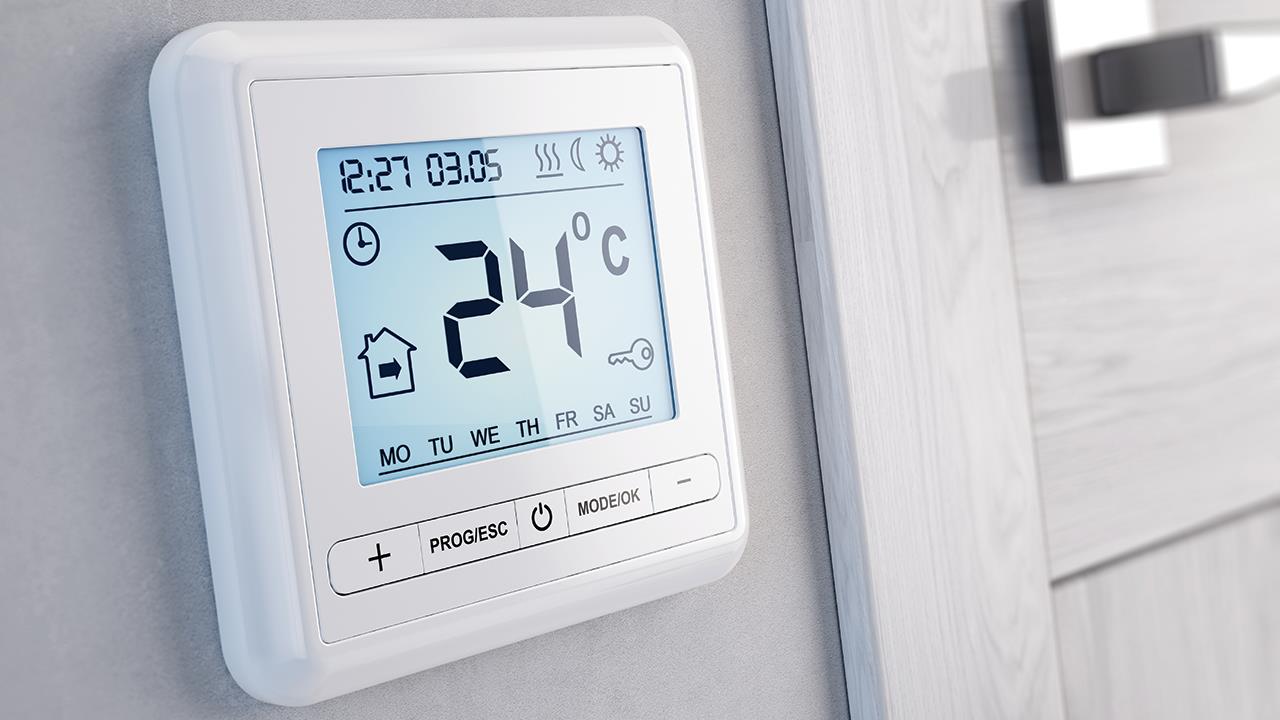

The BEAMA Heating Controls group recently commissioned research to identify the energy saving potential of load and weather compensating controls.
Despite these types of control being available for application in homes for decades, and being key options in the Boiler Plus regulations introduced in 2018, there is surprisingly little agreement on the actual reductions in gas consumption that will result from using such controls with a boiler.
Indeed, a study carried out by BRE for the Department of Business, Energy, and Industrial Strategy, as part of the Boiler Plus policy review, acknowledged “a lack of evidence regarding the energy savings that these controls are likely to achieve in practice”, although government had the foresight to recognise that savings would result, even if the actual level of these wasn’t known.
The Energy Labelling (ErP) regulations for boilers introduced in 2015 include additional scores for temperature controls, including load and weather compensation, which can be added to the rated efficiency of a boiler when that boiler is installed with a particular type of temperature control. However, the temperature control scores are effectively just a small bonus encouraging the use of such controls, rather than something based on any tests.
The government recently published a review of Boiler Plus that highlighted why a clear idea of the potential energy savings that load and weather compensation can deliver is so useful. In this review, installers said that they found it difficult to explain to consumers the benefits of these types of control, while the consumers themselves said they would be more likely to be interested if presented with tangible benefits, including upfront cost savings.
The BEAMA tests were carried out independently by the University of Salford in its Energy House test facility. The advantage offered by the Energy House is that it allows for the effect of heating controls to be robustly measured without the need for theoretical assumptions, as it is effectively a real house with a real heating system within an environmental chamber.
The tests were set up to measure the amount of energy used by a gas-fired heating system, with radiators running over a seven hour period compared to the same system using a standard on/off (Class I) room thermostat.
The results of the tests showed that the largest energy savings were achieved by load compensation, which also provides direct modulation of the boiler. These are defined as Class V controls under the ErP regulations.
The tests showed that these reduced the amount of gas used by the boiler by 15% in winter tests (outside temperature of 4.2ºC) and 9% in spring tests (outside temperature of 8.9ºC). It is estimated that this would equate to an overall saving of 12% in heating bills over the course of a full heating season.
There was enough evidence from the tests to conclude that weather compensation with direct modulation of the boiler (Class VI under ErP regulations) would provide a similar level of savings to the Class V control.
Both forms of control visibly improved the operational performance of the boiler, ensuring that it operated in condensing mode and modulated in response to part load conditions. However, the savings measured with weather compensation control were slightly enhanced by the internal temperatures maintained being lower than in the other tests. The set-up issues that contributed to this also revealed the need for information and training to support installers not already familiar with this technology.
The research also included tests on Class IV load compensators. These use a proportional on/off algorithm, such as pulse width modulation, to control the boiler, but are categorised as load compensation devices. These type of load compensators include, but are not limited to, TPI controls, and will work in situations where direct communication between the heating control and the boiler is not possible.
The tests showed that these reduced the amount of gas used by the boiler by 11% in winter and 9% in spring. It is estimated that this would equate to an overall saving of 10% in heating bills over the course of a full heating season.
There has been some debate on the impact of Class IV controls where the control algorithm can result in frequent boiler cycling, although the BRE study referred to above concluded that “no studies were identified that explicitly prove that boilers in heating systems with TPI controls wear out quicker than those without”.
The BEAMA tests identified that, under low heating load conditions such as you would find in spring and autumn, it is perfectly possible that the required heat output from combination boilers will be less than the minimum heat output of the boiler, as defined by its modulation range.
In such circumstances, a modulating boiler control may well default to proportional on/off control to maintain higher energy savings when the boiler is unable to modulate.
This demonstrates that any debate around relative merits of different type of load compensation needs to be based on a comprehensive view of heating system operation, and also highlights the importance of selecting boilers with appropriate modulation ratios for dwellings if you want to optimise the effect of modulating controls.
Confirmation of these significant energy savings should be welcomed by industry, consumers, and policy makers, and should lead to discussion on whether all room thermostats should include load or weather compensation to help the UK achieve its desired energy efficiency targets.
If you'd like to keep up-to-date with the latest developments in the heating and plumbing industry, why not subscribe to our weekly newsletters? Just click the button below and you can ensure all the latest industry news and new product information lands in your inbox every week.